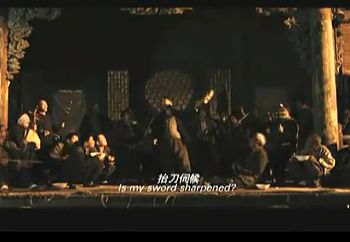对稀缺资源的争夺正在推高商品价格。中国的战略是到自然资源丰富但被西方国家忽视的经济体去投资。这些经济体需要判断到底哪一种模式,是美国模式还是中国式资本主义加政府支持模式,更适合自身经济增长。
戴姆比萨·莫约(Dambisa Moyo)是一位经济学家也是获奖图书《致命援助》(Dead Aid)的作者。她最近出版了一本新书《胜者为王》(Winner Take All),并接受了伯格鲁恩研究院(Berggruen Institute on Governance)达恩·纳卡嘎瓦(Dawn Nakagawa)的专访。
纳卡嘎瓦:您的新书《胜者为王》的主题是什么?
莫约:这本书主要在思考商品的供应与需求是如何塑造未来的。在需求方面,我们将经历多重变化:人口快速增长,将会从目前的70亿人增加到2100年的100亿人;一个史无前例的经济发展与全球财富增长速度,籍此新兴市场将会有30亿人跨入中产阶级行列;还有大规模的城市化。这三个因素都是刚性需求,而且将继续使商品资源变得紧张。在供应方面,形势很明显,我们没有充足的土地、水、能源与矿产资源来支撑上述需求。
 |
| Dambisa Moyo |
纳卡嘎瓦:谁将成为竞争的胜利者和失败者?
其一,他们正在将我所谓的“不受待见轴心国”(the Axis of the Unloved)也就是那些传统上被西方发达国家忽视的欠发达国家和地区作为投资目的地:比如拉美、非洲和东欧诸国。中国正在与这些渴望获得投资与经济发展的国家达成各种合作协议。
其二,他们自己就是主力买家。中国拥有超过3万亿美元的外汇储备并宣布它将积极利用这些资金在包括发展中国家和发达国家在内的所有国家公开进行采购、销售和放贷等商业活动。中国有多付酬劳的能力,她也是这样做的。这恰逢西方世界遭受信贷和赤字危机的时刻。
另外,中国已经成为一个独家垄断买方(monopsonist,某种特定商品的关键买家),这意味着他们掌握着定价权。
纳卡嘎瓦:那么这些欠发达国家也会成为胜利者吗?也就是说这些以前被排斥的国家最终会被带入全球经济体系之中?
莫约:我希望这样,但需要西方发达国家先有一个立场上的改变,仅凭中国自己还无力改变这一切。要将传统上一直当作受援对象的地区作为平等的伙伴关系来看待,西方世界心里仍有些不情愿。比如在贸易、外商直接投资和资本市场等方面,一直是发达国家和快速发展的新兴市场一个政策,而对非洲和其它欠发达地区则是完全不同的另一个政策。因此,通过制订不同的调子约束投资的责任在决策者们身上。
纳卡嘎瓦:稀缺自然资源上的竞争将如何影响21世纪东西方的关系?
一场理念之争尚在进行中,那就是以民主作为政治风气,以私人资本主义做为其经济平台的美国模式与以威权主义(authoritarianism)和国家资本主义为核心的中国模式之间的战争。新兴经济体作为这场战争的观众,要判断哪个模式可以更好地带动经济增长。在中国成为最大经济体、其经济获得巨大发展并完善了交通与教育体系之后,西方的民主与私人资本主义将变得更难以向外推销。
纳卡嘎瓦:您提到中国模式向外推广时存在“法律真空”,也就是在全球治理(global governance)方面还有缺陷。那么您认为这是谁的责任?同时需要采取什么行动来管理这种竞争?
莫约:尽管商品稀缺依然是紧迫的和引人关注的全球问题,但现在并没有专注于商品的全球治理机构。我们实际上需要有一家全新的机构,它将有权对全球稀缺资源实施有效的管理。尽管我并不认为设立更多的官僚机构会解决一切问题,但我提出上述设想是基于两方面的原因。首先其它国际机构都有各自的职权,全球治理不会成为它们优先考虑的问题;其次,它们都算是传统机构,其架构和心态依然停留在20世纪。
我们需要这样一个新机构,它承认大规模的转变正在进行中,要平等地对待包括拥有资源和需要资源国家在内的所有国家,并且不将西方的民主理所当然地视为未来的制度典范
China is the only country with a plan to secure scarce global resources
作者: Dawn Nakagawa and Dambisa Moyo 2012年11月21日基督教科學箴言報
Competition for scarce resources is driving up commodity prices. China's strategy is to invest in resource-rich economies overlooked by the West. These economies are watching to see which model – US or Chinese-style capitalism and government – best delivers growth.
Dambisa Moyo is an economist and the award-winning author of “Dead Aid.” Her latest work is “Winner Take All.” She was interviewed by Dawn Nakagawa of the Berggruen Institute on Governance.
DAWN NAKAGAWA: What is the central thesis of your new book, “Winner Take All”?
DAMBISA MOYO: The book basically looks at how supply and demand for commodities are going to shape the future. On the demand side we have a rapidly increasing population, from 7 billion today to 10 billion by 2100; an unprecedented rate of economic development and global wealth whereby the emerging markets will deliver 3 billion new people into the middle class; and finally, a massive rate of urbanization. These three factors are [straining] and will continue to strain commodity resources. On the supply side, there simply is not enough land, water, energy, and minerals to support these trends.
This competition for scarce resources is manifesting itself in higher commodity prices, which have increased 150 percent since 2009, and armed conflict. There have been about 25 wars the origins of which can be traced to commodities.
NAKAGAWA: Who will be the winners and losers in this competition?
MOYO: China is the only country with a systematic and deliberate plan for securing resources. There are three key pillars of their strategy:
First, they are investing in what I call the Axis of the Unloved – underdeveloped economies which have traditionally been overlooked by the Western developed countries as investment destinations: Latin America, Africa, Eastern Europe. China is making deals with these regions that are hungry for investment and economic development.
Second, they are making themselves the go-to buyer. China has over $3 trillion in exchange reserves and has announced that it is open for business by using the reserves to buy, sell, and lend actively in both developing and developed countries. China is in a position to overpay, and has done so. This is at a time when the Western world is suffering from credit and deficit crises.
Finally, China has become a monopsonist – the key buyer of a particular commodity, such as copper and coal – which means they can set the prices.
NAKAGAWA: So could the underdeveloped countries in the axis be among the winners, finally bringing these formerly marginalized economies into the globalized world?
MOYO: I hope so, but it will take a change in attitude by Western developed countries. China cannot do it alone. There is still a reluctance to treat regions that have traditionally only been targets of aid as equal partners. There has been one policy for developed and rapidly emerging markets, such as trade, foreign direct investment, and capital markets, and a completely different policy for Africa and other underdeveloped regions. The onus is on the policymakers to encourage investment by setting a different tone.
NAKAGAWA: How will the competition for scarce resources impact relations [between] East and West in the 21st century?
MOYO: There is a battle of philosophies under way between the US model, with democracy as a political ethos and private capitalism as its economic platform, and the Chinese model of authoritarianism and state capitalism. The emerging economies are the spectators to the battle, watching to see which model can best deliver economic growth. Democracy and private capitalism will be a harder sell when China has become the No. 1 economy, developed their economies, built their roads and schools.
NAKAGAWA: You refer to the “legal vacuum” in which China is operating, which points to a deficit in global governance. Whose responsibility is this, and what action needs to be taken to manage this competition?
MOYO: Despite the urgency and concerns around commodities scarcity, there is no global governance institution focused solely on commodities. We actually need a new institution where the full mandate is the effective management of scarce resources. I am not a believer in more bureaucracy as the answer, but we need a new institution for two reasons. First, the others have their mandates and this cannot be a priority for them. Secondly, they are legacy organizations that, in structure and attitude, are still in the 20th century.
We need a new organization that acknowledges the massive transformations under way, treats all countries as equal citizens – both those who have the resources and those who want them – and doesn’t take for granted that Western-style democracy is going to be the dominant paradigm of the future.













